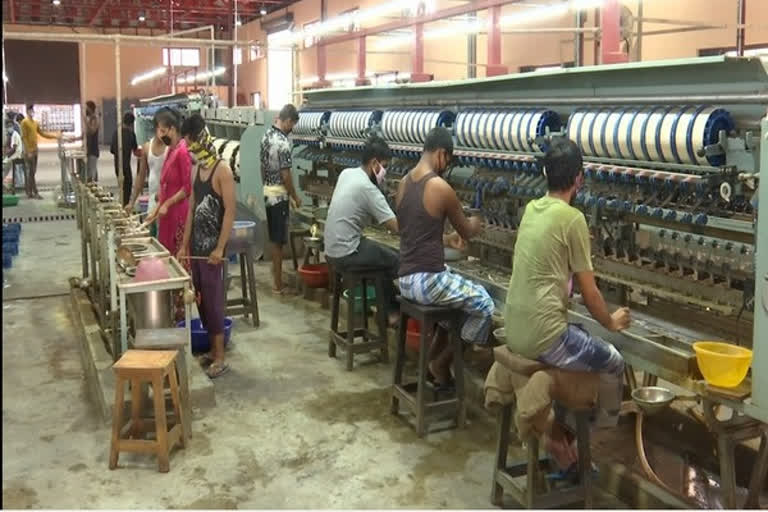New Delhi: Majority of Indian companies have reported weak demands due to the second Covid wave that hit India hard in April-May this year, saying they were managing costs as a large number of companies were also facing a tight liquidity situation, revealed a survey by the industry body FICCI.
India Inc, however, hopes the situation will turn the corner in the next 6-12 months.
“The second wave of the COVID-19 pandemic that hit India during April-May 2021 was extremely intense and impacted the functioning of businesses,” said the survey jointly done by FICCI and Dhruva Advisors.
The survey said the swift pace at which the virus travelled across the nation led to a sudden jump in the overall infections with daily new case load touching new highs and putting enormous pressure on the country’s healthcare system.
In the survey, participating companies appreciated micro-containment zones and localized lockdowns adopted by States unlike a complete nationwide lockdown imposed by the Centre in March last year.
“While such measures were necessary, these did have an impact on economic activities,” it said.
The survey showed that 58% of the companies saw a high impact on their businesses due to the state level lockdowns while another 38% reported a moderate impact on their operations.
“Fifty-eight per cent of the surveyed companies reported ‘weak demand’ as the biggest challenge they are facing under the current environment. This was followed by ‘managing costs’ (56%) and ‘tight financial liquidity’ (43%) that emerged as other significant issues companies have to deal with in the present situation,” the survey said.
According to the survey, this time it was not just demand in urban areas that was constrained but even the rural areas saw a compression in demand with 37% of the companies reporting a ‘high impact’ on their sales in rural markets.
The weak demand situation impacted capacity utilization of companies with 40% of the companies reporting capacity utilization of less than 50%.
Improvement in 6-12 months
Although the second Covid wave has hit the country hard, both in terms of loss of lives and livelihoods, participating companies said there is a silver lining on the horizon.
“With different states getting into the ‘unlock’ mode, there are immediate indications of improvement in economic activity. This trend is also reflected in the expectations companies have regarding capacity utilization over the next 6-12 months,” said the FICCI-Dhruva survey.
The Survey showed that nearly 63% of the companies foresee utilization rates to be over 70% in the next two to four quarters.
Scale up vaccination before third wave: FICCI
“There is hope that business and economic activities would regain normalcy in the months ahead. Even as we see signs of improvement, we must prepare ourselves well for the subsequent waves,” said FICCI President Uday Shankar.
“A third wave with similar or greater intensity, as is being projected by some experts, could undo the gains seen in the recent weeks,” Shankar cautioned as he urged for scaling up the vaccination drive.
The findings of the survey have been released on the day when India opened a nationwide free vaccination for all adult population at government healthcare facilities while vaccination at private centres will remain paid.
According to the national vaccination portal CoWin, more than 75,43,000 vaccine doses were administered on Monday which is a record.
According to the latest data, more than 282 million vaccine doses have been administered so far with over 232 million people receiving at least one dose while more than 50 million people have received both doses.
India Inc sees mass vaccination as the only lasting solution to the Covid-19 global pandemic and a foundation for economic growth as it will result in improved business activity and the return of workers to production sites.
“There is a significant expectation from the Government that we are well-prepared for subsequent COVID-19 waves,” said Dinesh Kanabar, CEO of Dhruva Advisors.
Also Read: Despite Covid India's FDI jumps by 27%, becomes fifth largest recipient



